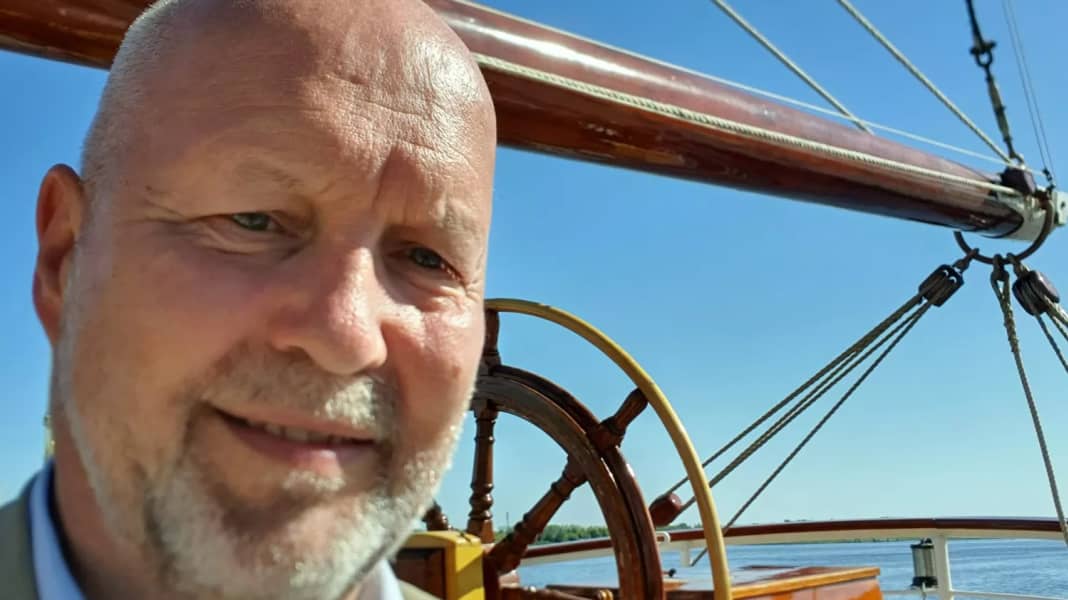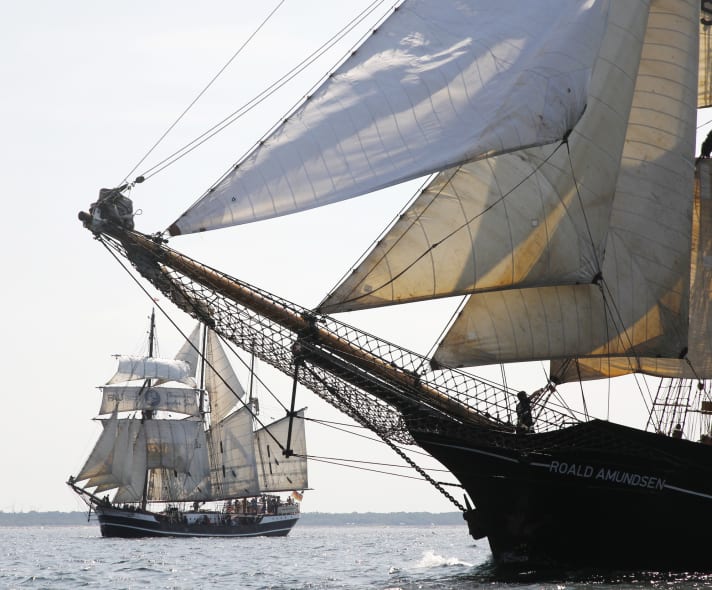Restoration fund and young talent: Jan-Matthias Westermann wants to secure the future of traditional ships
Jan Zier
· 28.10.2022

The traditional shipping scene met in Hamburg last weekend: The European umbrella organisation for the preservation and promotion of traditional shipping "European Maritime Heritage" ( EMH ) organised its two-day annual conference. Around 25 representatives from the national umbrella organisations attended.
On the agenda were the consequences of ever stricter safety requirements, but also the consequences of tight budgets for the preservation of maritime heritage and the financial support options for boat operators. The Amsterdam-based EMH has set up a European foundation under German law entitled "Maritime Heritage Europe" and aims to "raise awareness and increase support for sponsors from the industry and the support of citizens and European and national administrations", according to the organisation.
Young people should be interested in traditional ships
Cross-border voyages in Europe were also discussed. In addition, the General Assembly jointly agreed to further promote youth exchanges and create more incentives for young people to get involved on traditional ships. The EMH must now develop concrete models to put this into practice.
"The traditional ships are THE landmark at all harbour festivals in Europe and thus an important component for connecting people within Europe," it says in a statement. "This promotes European cohesion in the long term. More than ever, also in view of the current political situation, it is necessary to support Europe's traditional ships in every possible way. Without them, much of our cultural heritage in this area will be lost forever."
It was formally decided to open up membership of the EMH to other organisations, such as associations that operate traditional vessels. Germany has so far been represented in the European umbrella organisation by the "Joint Commission for Historic Watercraft" ( GSHW ) will be represented. In future, individuals will also be able to become involved as supporting members, known as Friends of EMH.

"We have a great maritime heritage that needs to be preserved!"
We spoke to Jan-Matthias Westermann, Chairman of the German umbrella organisation and Chairman of the "European Maritime Heritage" Foundation, about the problems and the future of traditional ships.
How are the traditional German ships doing, Mr Westermann?
Jan-Matthias WestermannThere are fewer and fewer of them! Ten years ago there were 120 such ships in Germany, today there are still around 100, and it is to be feared that there will soon only be 90 - because the requirements of the new Ship Safety Ordinance are difficult to implement.
What is the problem?
In 2018, it was passed with our blessing after lengthy discussions. It was then agreed that we would receive 20 million euros from the federal government for the conversion of the ships, i.e. around 200,000 euros per ship. However, due to EU regulations, the money is only to be given if you are "in need of subsidies", although as a non-profit organisation we are not allowed to make a profit anyway. You have to prove that you are basically broke - but then you can no longer sail the ship! So far, around a third of the ships have not benefited from the funding, and the problem has still not been solved. We will now take the matter to the EU.
The maintenance of ships is also becoming more and more expensive. What impact is this having?
Many traditional ships are now over 70 years old - but they were not built to sail for so long. Now they have to be repaired from the ground up more often than is nice. With the Kiel Marstal schooner "Zuversicht" For example, even with a lot of in-house labour, the final cost comes to 2.5 million euros. No voluntary organisation can pay that from its current income.
You have to be honest: We can't save all these ships?
Good question. Ten years ago there were still around 6,000 traditional ships in Europe, today there are 5,000, so we really need to get young people interested in these ships so that they ensure that there will still be some around in 20 or 30 years' time. We have such a great maritime heritage that needs to be preserved! And these ships also give something back to young people in many areas. We are now launching an initiative for this: international exchange is to be specifically promoted and qualifications on board are to be better recognised, similar to a voluntary social or cultural year.
Many traditional ships are already complaining about a lack of new recruits.
Yes, because often nobody has bothered. If you don't give young people a chance, they won't come. We have to open up to them and deal with them differently. Many young people are much more aware of travelling the world today, and now we need to raise awareness of traditional ships, for example in cooperation with the Sail Training Association Germany ( S.T.A.G.), where 3,000 young people learn traditional sailing. So not only do we need to open up, but we should also create official qualifications that will help young adults in their careers. This all needs to be publicised via social media.
How well have the traditional ships come through the pandemic so far?
The fleet is slightly battered, but has essentially pulled through. Some ships have received bridging assistance, others have used up their reserves and some are saying: "We can't manage it now and are desperately looking for a buyer. If you can no longer cover the running costs with regular income, the ships also suffer, and they have to be maintained intensively every year.
Do you have more problems getting donations today?
The political situation we find ourselves in doesn't make it any easier.
Are the traditional ships better off in Denmark?
Yes, there is a fund there that can be used to repair a ship from the ground up every year. We are also endeavouring to do the same in Germany. Today, which ship is subsidised here often depends on chance and good contacts in politics. That should not be the case.
Jan-Matthias Westermann, 69, is a tax consultant, has been Chairman of the umbrella organisation of German traditional ships since 2016 and Chairman of the European Maritime Heritage Foundation. He is involved with the two-masted schooner "Freddy", built in 1948 ( www.segeln-mit-freddy.de ).

